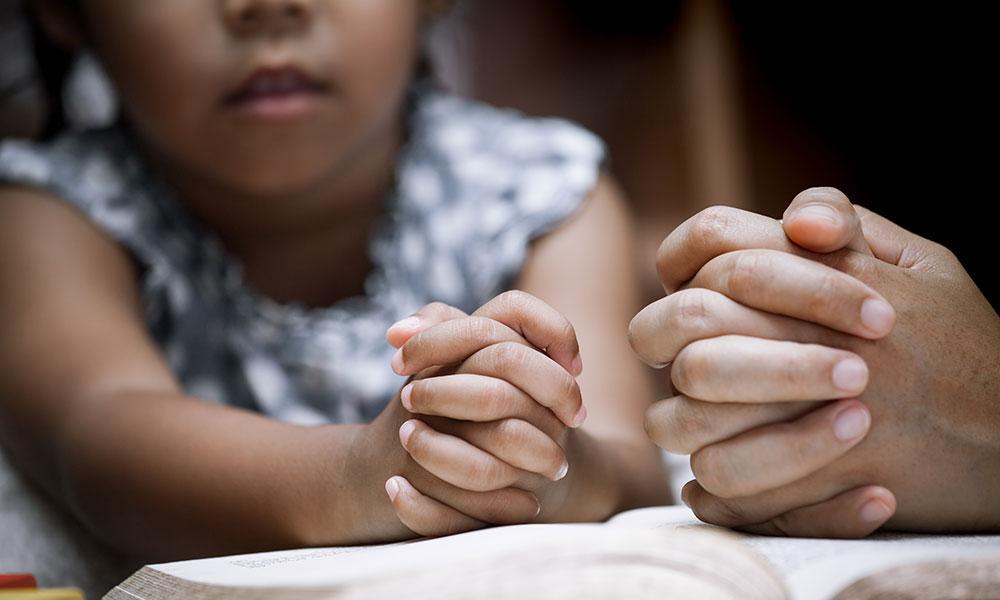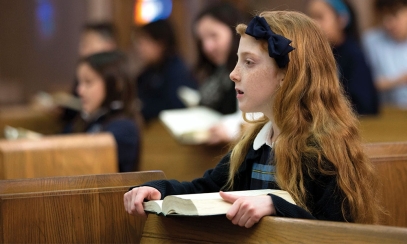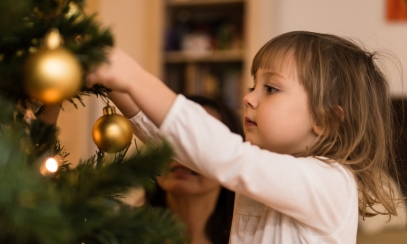
Raising Children of Faith
January 17, 2023 | The other day, I was home with my family after Sunday Mass and, while sitting around the table for our traditional Sunday brunch, the thought crossed my mind: “I hope my kids hold on to their Catholic faith when they’re adults.”
January 17, 2023 | The other day, I was home with my family after Sunday Mass and, while sitting around the table for our traditional Sunday brunch, the thought crossed my mind: “I hope my kids hold on to their Catholic faith when they’re adults.”
Right now, they’re young and they do what my wife and I do. When we pray grace before meals, they pray grace before meals; when we say it’s time to go to Mass, they get their church clothes on and they go to Mass. But what is going to happen in 20 years, when they’re on their own and the world is a storm buffeting the security of their personal faith? Will they have enough to hold on?
This is a question over which many parents worry. They know the value their faith has brought them, and they want that for their own children. The blessing and the challenge about the answer to that question are that, according to the popular sociologist Christian Smith, “All research in the United States today shows clearly that parents are by far the most important factor influencing their children’s religion, not only as youth but also after they leave the home.” This is a blessing because we can influence our children. It can feel like a challenge though, because we still need to figure out how to influence them.
In reflecting on the good of family life, the Second Vatican Council revived an ancient term the Church Fathers used to describe the family: the domestic Church. This was an important development because, as Pope St. Paul VI later taught:
“This means that there should be found in every Christian family the various aspects of the entire Church.” The family is called the domestic Church because it is meant to do all the various things the Church does, in the home.
This is significant because it helps give us a sense of what makes the Christian family distinctive. The Church serves the “least of these,” so the family must be a place where the “least of these” are welcomed and cared for. The Church regularly gathers to pray, so the home should be a place where those present regularly gather for common prayer. And the Church, through the various dimensions of her life such as the liturgical year, “keeps the memory of the Lord” and “completes the formation of the faithful,” as Vatican II taught. Therefore, it will also be the various dimensions of the lived faith that form the members of the people of God in the home.
Fittingly, this is how God instructed the people of Israel to pass on the faith to their children. In the book of Exodus, God gives the instructions for how the people were to celebrate the Passover meal. After explaining all the details, God adds, “When your children say to you, ‘What do you mean by this service?’ you shall say, ‘It is the Passover of the Lord …’” God goes on to explain further what they are to say to the children, but the model is there. The Jews lived the faith in their homes in a very intentional manner and, therefore, the culture and the ethos that formed the child prepared them to ask questions about their faith. It was in that moment when the child was already mature enough to reflect on the faith and form questions about it that they were primed to learn.
For those of us raising children today, creating a culture of faith in the home is one of our most important tasks. No longer does the wider culture provide the foundation for reflection on questions of faith. It is up to us as families to intentionally create the atmosphere which will allow our children to reflect and ask questions. It is in our homes that our children can live a culture of Catholicism through the way we live and celebrate the various aspects of our faith and this in turn primes them to soak up what our Catholic schools have to teach them about the glories of our faith.
Catholic schools partner with us because, frankly, we don’t always have the answers to the excellent questions our children pose about the Catholic faith. But the groundwork, the essential preparation, is done in our homes when we celebrate, pray and love with them the beautiful traditions of our faith.



